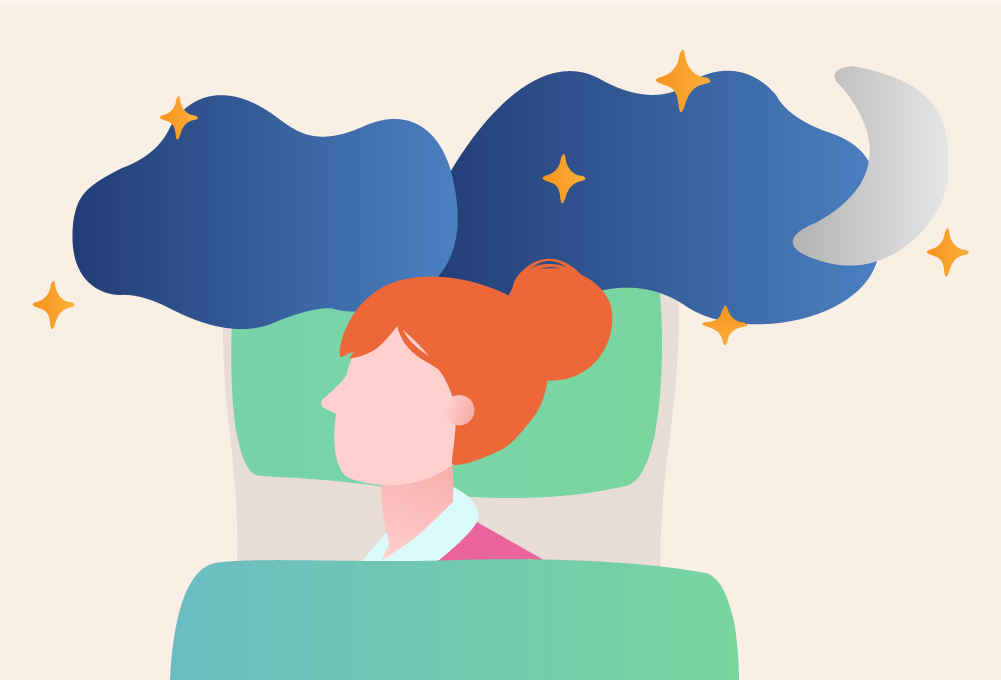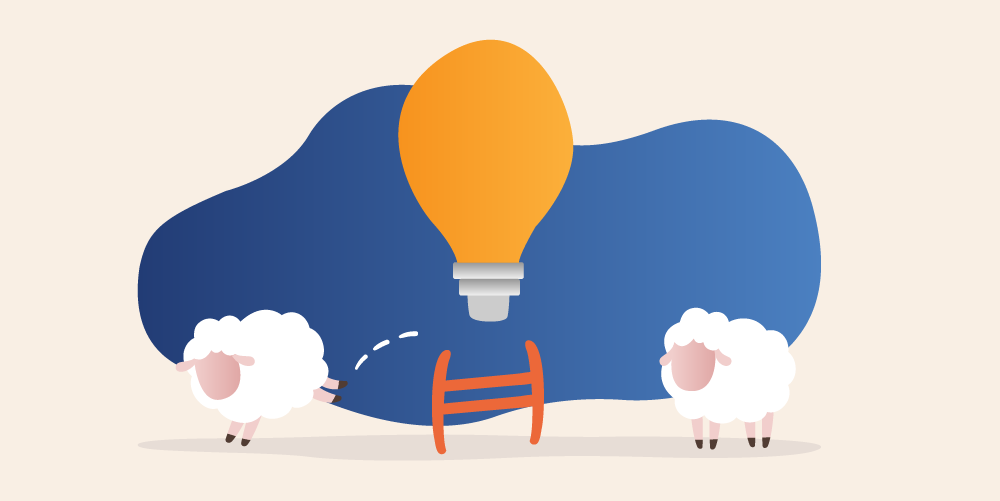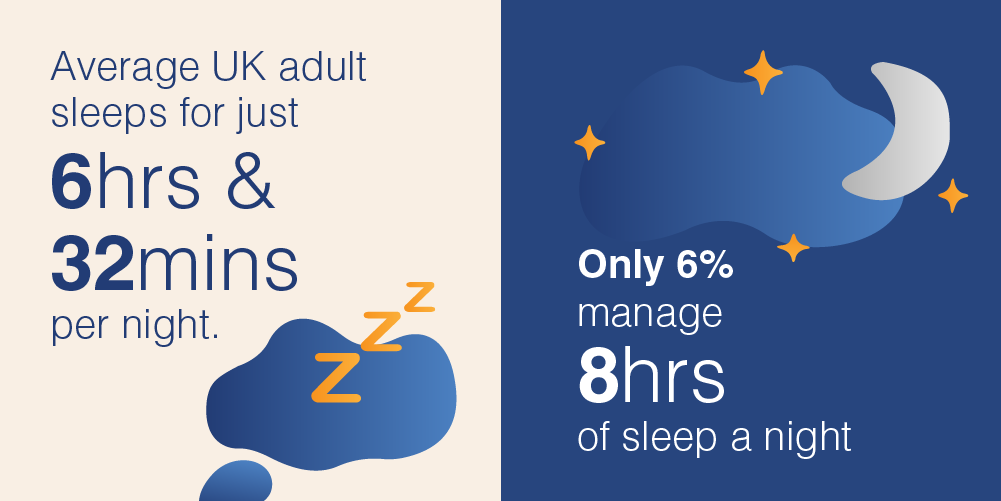Just sleep on it
 We all need sleep. Whether you get 4 hours or 8, this time of processing and restoration is essential. Yet, in a world where many of us have the pressure of a rapidly growing to-do list, and increasing demand for innovative and creative solutions, we’re sacrificing sleep. But what if sleep was the key to unlocking our creativity?
We all need sleep. Whether you get 4 hours or 8, this time of processing and restoration is essential. Yet, in a world where many of us have the pressure of a rapidly growing to-do list, and increasing demand for innovative and creative solutions, we’re sacrificing sleep. But what if sleep was the key to unlocking our creativity?
Most of us will have experienced those ‘lightbulb moments’: where we wake in the middle of the night with a great idea. It’s then a frantic rush to write it down before you forget what it is.
And, we’re not alone.
Salvador Dali famously connected his surreal paintings to dreams.
Paul McCartney says the melody for the song ‘Yesterday’ came to him in a dream.
The French Surrealist poet, St. Paul Roux, put a sign on his bedroom door before bed each night which read: “Poet at work”.
And, Nobel Prize-winning author John Steinbeck wrote:
“It is a common experience that a problem difficult at night is resolved in the morning after the committee of sleep has worked on it.”
So, why is it that, having spent a whole day troubling over a problem, inspiration strikes when we’re sleeping?

Some science-y explanation
Well, research suggests the reason sleep might be so helpful in problem-solving and forming novel ideas is because the two main stages of sleep, REM and non-REM, work together to connect previously unrecognised links between things we already know. Consequently, helping us find creative solutions to those annoying problems.
A little more detail
A sleep cycle is the progression through various stages of non-REM sleep to REM.
During non-REM sleep, we replay different memories that are related, and our brain organises new information into categories. That’s why you often have dreams which include snippets of moments that happened on that day.
During REM sleep, acetylcholine, the chemical responsible for the randomisation of data connections during dreaming, is at its highest. This is when our brain combines different categories and makes novel connections between them.
Where does creativity come into it?
Dreams help us make connections between things that you may never normally connect, sometimes resulting in ‘lightbulb moments’. That’s why sufficient REM and non-REM sleep is essential for productivity and creativity.
“It’s almost like group therapy for memories. Through this informational pattern alchemy at night, we create a revised mind-wide web of association. And you can start to divine new novel insights into previously unsolved problems, so that you wake up the next morning with new solutions.”
Are we getting enough sleep?
It’s probably no surprise to anyone that the average person living in the UK fails to achieve the recommended 8 hours of sleep per night.
According to the 2018/19 Great British Sleeping Habits survey undertaken by Chemist 4 U, only 6% of us manage 8 hours of sleep a night, with the average adult in the UK sleeping for just 6 hours and 32 minutes per night.
For some people, this is enough…
But, naturally, different people have different sleep needs.
A study explored the connections between types of creativity and sleep patterns by looking at the differences between art and social science students’ sleep.
Researchers found that the higher the participants’ level of visual creativity, the lower the quality of sleep whereas the higher the participants’ level of verbal creativity the longer hours they slept and later they both slept and woke.
And, for others, less is more…
Various artists have claimed that bouts of insomnia have actually helped them be more creative. This is most likely attributed to the fact that insomniacs have more time to fill and so have more time to be creative, or that they deal with the unrest of their mind through creative output.
Although links have been found between insomnia and creativity, no research has proven definitively that insomniacs are inherently more creative. Furthermore, generally, sleep deprivation degrades mental agility, so long-term loss of sleep would have a negative impact on creativity.
Get some sleep
While we all have individual sleep requirements, getting enough sleep is important for everyone. And the benefits of sleep are highlighted in Dr Sara Mednick’s TEDx talk.
She argues for the importance of letting our brain rest. We’re constantly being bombarded by new information while we’re awake, so sleep gives us time to protect new information that we’ve just learnt, and convert it into long-term memories.
Her research showed that having a nap can increase creativity by 40%.
For those prone to sleep inertia (the period of grogginess we feel between sleeping and being fully awake – usually 15-30 minutes, but for some it can last up to 4 hours), napping isn’t ideal.
And, not all of us are able to have a siesta post-lunch, even if we’d like to.
But regardless, the importance of factoring in enough rest time (whether that’s getting a good night sleep, a power nap, or just taking a bit of time out) and the benefits of taking it are clear.
…which poses an interesting question around time spent working vs resting.
Is the balance wrong?
Many companies offer flexible working hours to allow people to achieve a better work/life balance.
(If you’re more of a morning person like I am, I know I’m most productive first thing in the day, and I’m able to start work early in line with this.)
At the more extreme end of the scale, some employers offer unlimited annual leave, as they believe that it boosts productivity.
It’s interesting to look at how our society is changing to recognise the need for periods of rest. And how the industry might need to make further changes to allow people to reach their full creative potential.
So, in conclusion…
If you feel worn out and frustrated when trying to solve a creative problem, it might be worth looking at the quality (and quantity) of rest you’re getting.
And, don’t underestimate the benefit of just sleeping on it.
Top tips for getting a good night’s sleep (in pursuit of that lightbulb moment)
Keep a notepad and pen by your bedside – If you wake up worrying about something in the middle of the night, write it down. It should help you to drift off to sleep again quickly.
Exercise regularly – We’re not saying you need to run 10k, but even a lunchtime walk could help you sleep better. Just don’t exercise too late in the evening or it may have the opposite effect.
Digital detox – Reducing screen time before getting in the zzz’s can help your body’s natural occurring circadian rhythm, increasing the release of the hormone melatonin, which is important for regulating our sleep-wake cycle.
Routine – Going to bed at a regular time helps your body get into a routine by setting your internal body clock.

About markmaking*
markmaking*
mark-making* is an award-winning creative agency specialising in branding, campaigns and communications